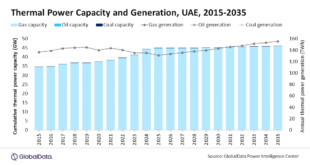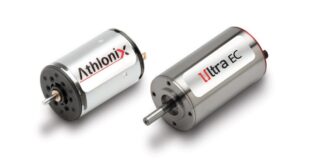Smart water technologies provide simple, scalable solutions to operations of all sizes. Through IoT-powered smart water meters and monitoring, even complex operations use real-time data to reduce waste, manage costs, and enhance efficiencies. Matthew Margetts reports
Water is one of humanity’s most valuable natural resources. Currently, there is a range of factors threatening water supplies – and concerns around availability and quality of water underscores the need for industry to adopt sustainable water management practices. The challenge is to innovate around new technologies and traditional water management approaches to ensure adequate quantity and quality to meet individual, agricultural, and industrial needs into the future.
Against this backdrop, it is essential that industry taps into technological solutions to minimise water needs, manage waste, and drive sustainability. Smart water technologies provide simple, scalable solutions to operations of all sizes. Through IoT-powered smart water meters and monitoring, even complex operations use real-time data to reduce waste, manage costs, and enhance efficiencies.
Why is water sustainability important?
According to the United Nations World Water Development Report, at least six billion people will experience water scarcity by 2050. This has been attributed to population growth, limited water resources, pollution, and economic growth. Water security is already a concern – around two billion people around the world do not have access to safe drinking water.
Forecasting around future water needs is complex. It is estimated that growing populations will lead to a 60% increase in food production by 2050. Notable increases in water requirements are predicted across agriculture, industry, and the energy industry. Simultaneously, water resources are shrinking.
It is a problem that is exacerbated by climate change. Climate change affects not only the availability of water, but also the quality of water supplies. Unpredictable rainfall patterns and drought immediately come to mind as climate issues affecting water scarcity. However, it is important to remember that rising water levels from ice melt, floods, and natural disasters have the effect of contaminating water supplies.
Smarter, more sustainable water management
Sustainable water management relies on a nexus between supply and demand efficiencies. This encompasses everything from preventing leakages and ensuring accurate billing to the investment in smart technologies and smart building processes that reduce water consumption and waste and mitigate the need for water-intensive processes. This often needs to happen across multi-site operations.
Smart technologies have disrupted traditional water management methodologies through monitoring, analysis, and action around data, as well as modelling and digital twin capabilities. These technologies are low-cost and high-impact, using data to optimise operations, devise areas of improvement, and monitor the effectiveness of strategic changes.
Smart water systems, like those available from Smarter Technologies Group, have many of the following features, which are fuelling sustainable change for industry.
Monitoring is the first step in understanding usage patterns, taking water-saving actions in the immediate term, and strategising for long-term change. This does not require a costly overhaul of legacy systems. AMR smart water meters have retrofit capabilities that provide real-time metrics for simplified water management and sub-metering.
Water usage data can be monitored in real-time and stored through a system of cloud-based record-keeping, with scope for customised reporting that is aligned with objectives. This removes the need for manual readings and makes for accurate billing. It also creates a platform for more accurate forecasting, automation, modeling and digital twinning. This means more impactful strategising with minimal disruption to operations and quality of performance.
This metering system is pre-programmable, allowing for alerts to be set around certain thresholds. This provides powerful, actionable insights for leak detection and monitoring of ongoing usage patterns. This cloud-based platform provides monitoring and control capabilities across multi-location operations.
Stopcock functionality means water can be remotely turned off in response to breached usage thresholds or in an emergency. If automation is to be a hallmark of future sustainable water management practices, smart water solutions are leading the way in this regard.
This monitoring and management system is the simplest way to reduce consumption and so environmental impact. Data insights highlight efficiency opportunities for the achievement of easy gains around water savings, as well as adjusted patterns for strategic, long-term change.
If water scarcity predictions become a reality, this is an area that will likely become the subject of strict regulation. Smart technologies provide myriad benefits for flexibility and resilience in the face of tightening legislative provisions. Data insights will assist industries to keep within prescribed parameters. This aids continuity for manufacturing and commercial enterprises. Data readings and cloud-based record-keeping make for simplified reporting.
Digitalisation is occurring throughout commercial operations with benefits for sustainability and reduced environmental impact. This has the power to affect everything – including utilities. In preserving our precious natural resources, the most powerful changes stand to be made by monitoring usage, analysing data, and strategising for enhanced efficiencies.
Matthew Margetts is a Director at Smarter Technologies.
 Engineer News Network The ultimate online news and information resource for today’s engineer
Engineer News Network The ultimate online news and information resource for today’s engineer



